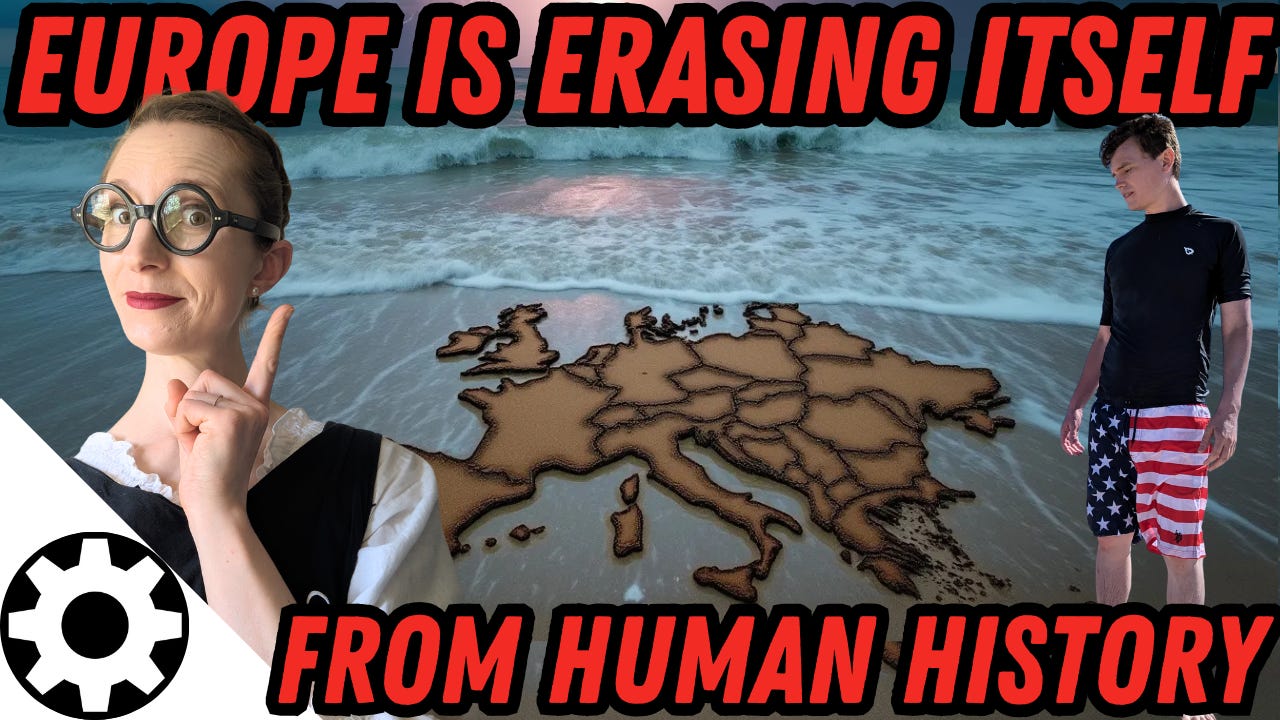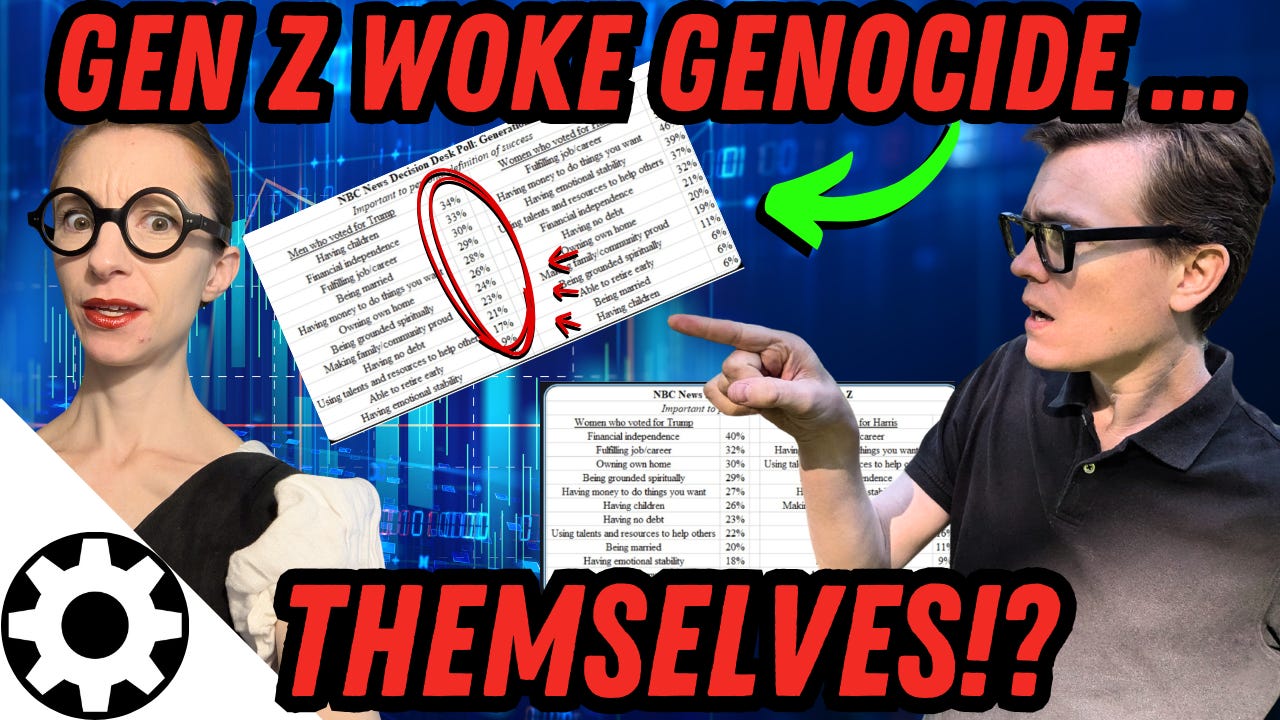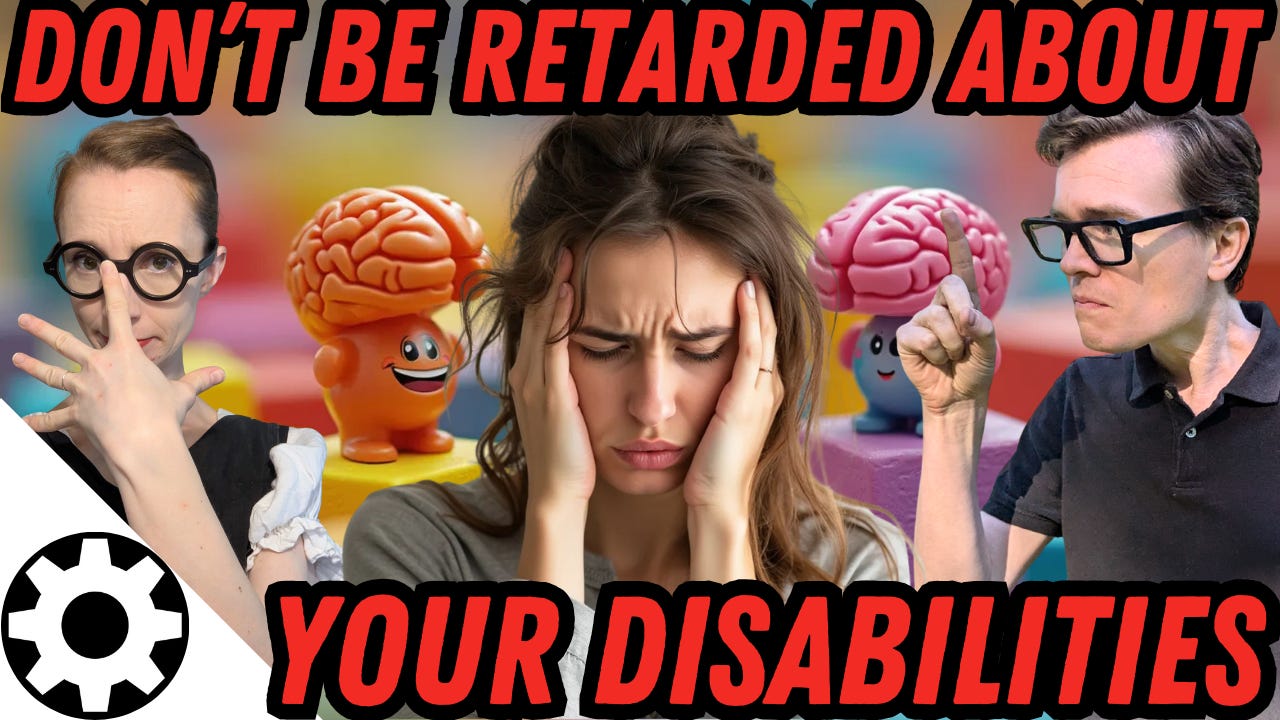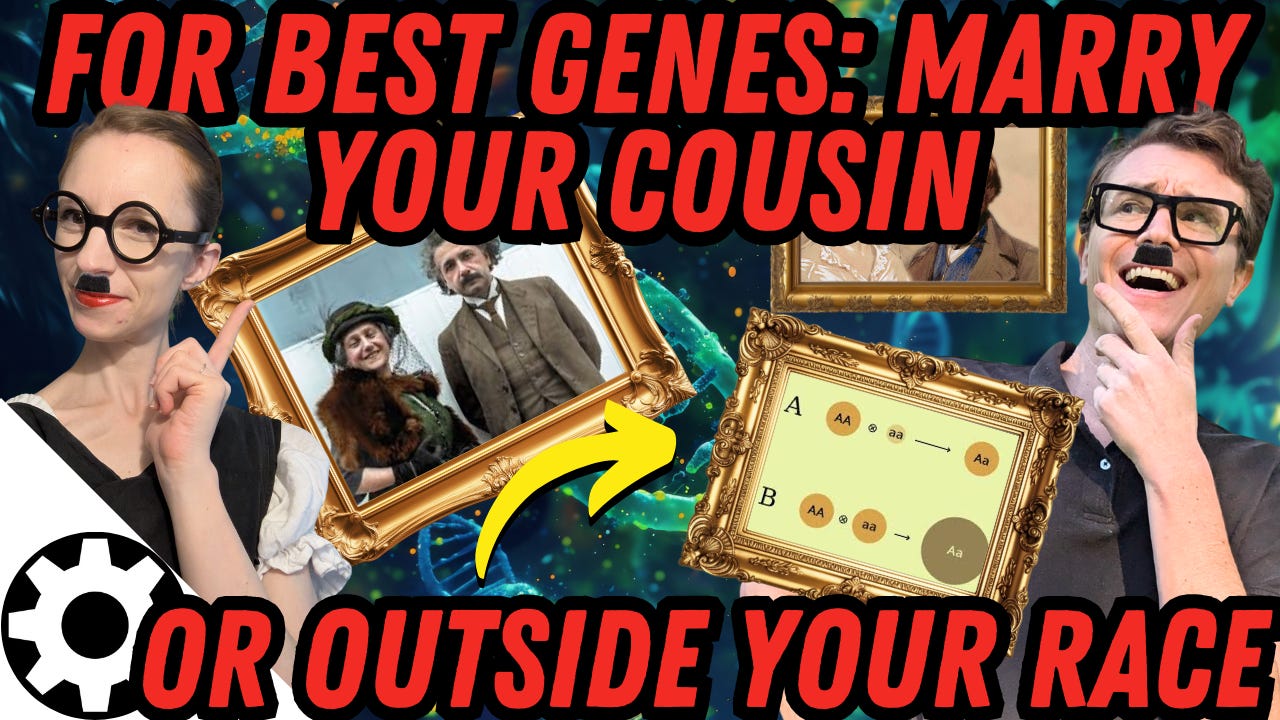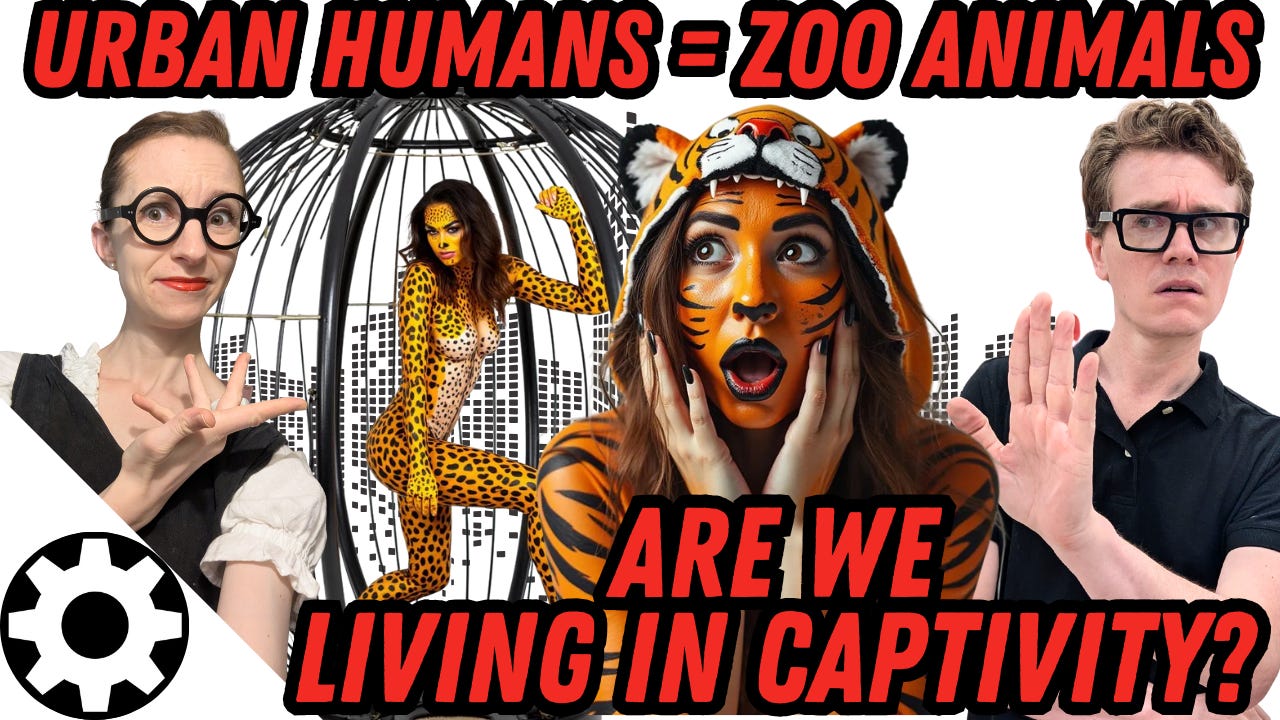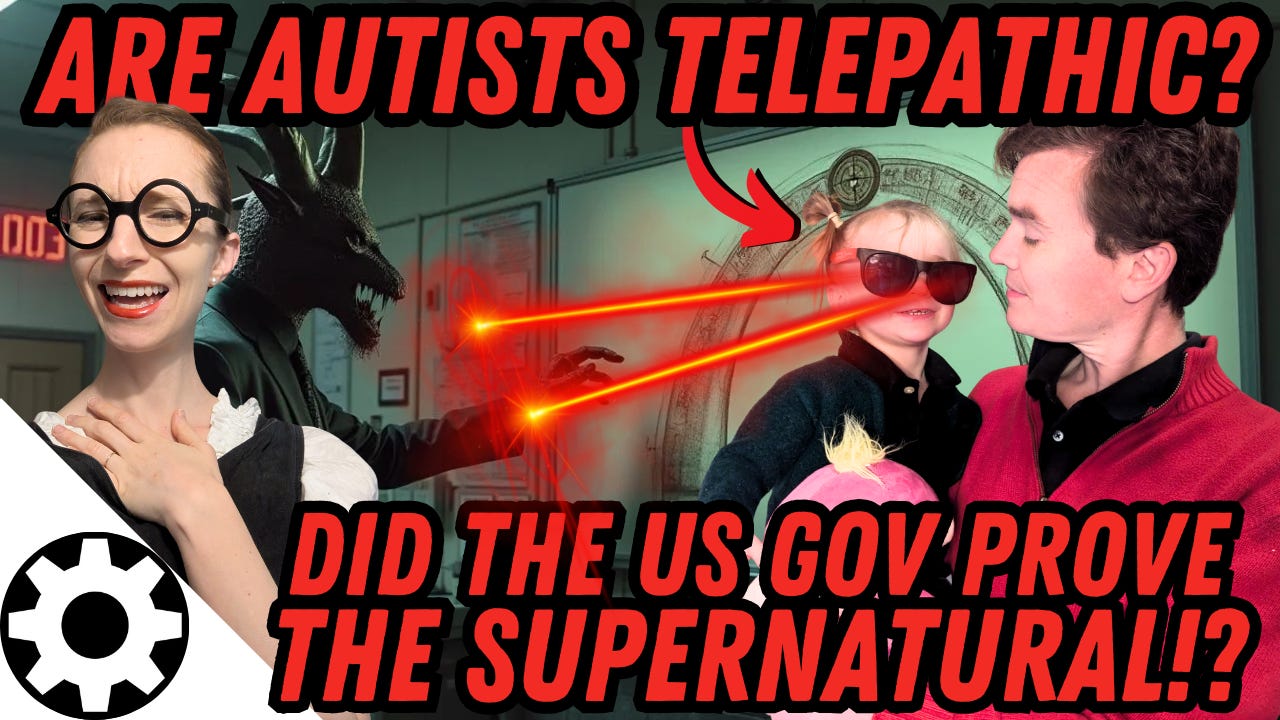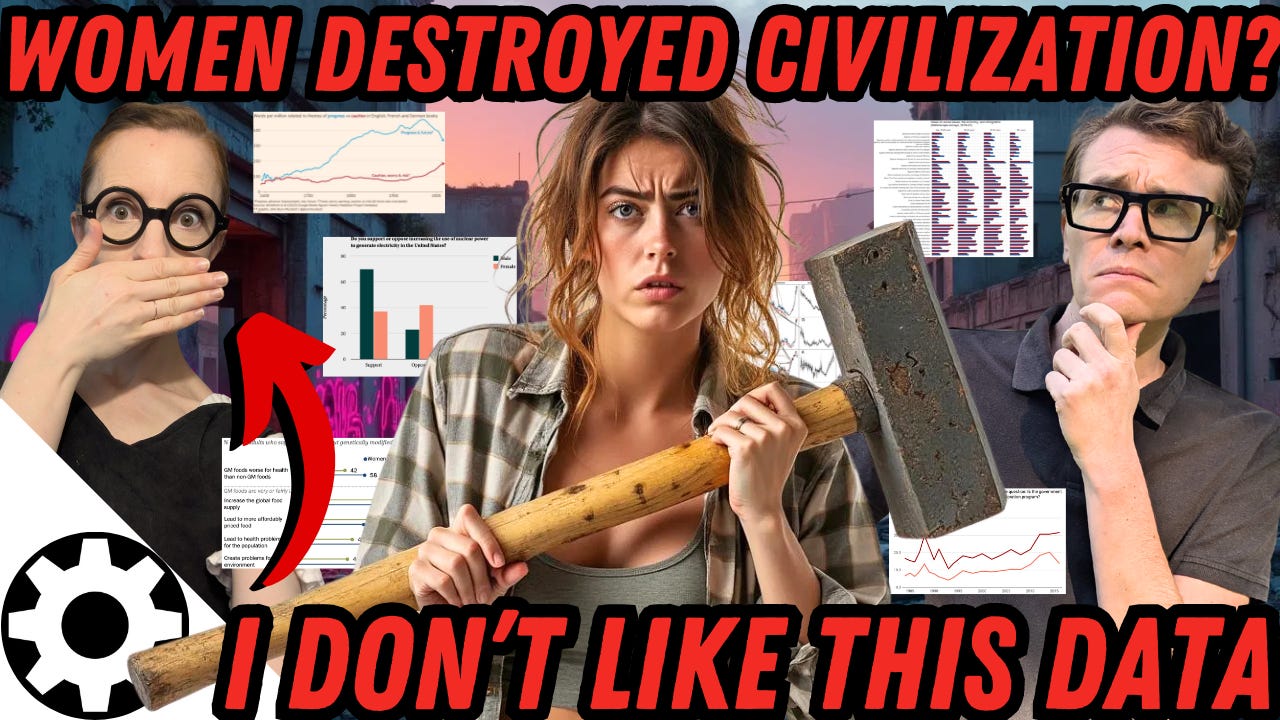How Europe's Relation With AI Is Erasing It From History (How AI Changes The Collective Consciousness)
Description
In this episode of Based Camp, Malcolm and Simone Collins dive deep into how Europe is rendering itself obsolete in the age of AI. They discuss the shift from SEO to AI-driven influence, the impact of privacy laws like GDPR, and how these changes are erasing European culture from the digital future. The conversation covers the collapse of traditional power networks, the importance of building a unique online footprint, and the new rules for reputation and employment in a post-AI world. Plus, they share personal stories, debate the pros and cons of privacy, and explore the future of secret societies and elite networking.
Episode Transcript:
Malcolm Collins: Hello Simone. I am excited to be here with you today. Today we are going to be talking about how Europe is erasing its itself and its civilization from history within the context of. AI and we are also going to talk about how AI changes the strategies that we as humans use as we relate to the world around us and ensure our own impact on the future.
Speaker: We need to talk. What is that? This is a flying robot. I just shot out of the sky after it delivered a package to my house.
So I destroyed the robot. No one is safe from these b******s.
Malcolm Collins: Hmm. So to. Start with this second topic here. You used to be, at one point you were the director of marketing at the 45th Most Traffick website in the United States. Yeah. And it's the website where people go and write it was hub Pages is what it was called.
Simone Collins: Yeah. And then it was, I think it sort of became.
A different [00:01:00 ] brand over time, but yeah, it it, what was the
Malcolm Collins: other brand that bought it? Squidoo.
Simone Collins: Yeah. Well, no, it acquired Squidoo, I think. Okay. And then it became something they now call, you're doing something else, whatever.
Malcolm Collins: At the time it was really big, right? Yeah. This meant that you were at that point in your career, one of the world experts in what is called SEO, this is search engine optimization.
This is how you ensured that when people searched for things, they saw your takes. And not somebody else's tips. Yeah. Mm-hmm. I mean, often it's involved in marketing or whatever, but it, it matters a lot. Like if we were running the prenatal list movement back then, everything we would be focused on is, how do I ensure it ranks well within SEO?
How do I ensure, and these systems, you know, companies lived and died on SEO, like Google would roll over in it'd sleep and all of a sudden it's a whole new ball game. Oh,
Simone Collins: it would? Yeah. All hands on deck. Emergency situation. At the business, 100%. Very stressful.
Malcolm Collins: But we are [00:02:00 ] moving into a world where SEO is almost irrelevant.
Given the way AI works and what AI picks up in terms of ideas is very different than what would've been picked up in an SEO environment.
Simone Collins: Mm-hmm.
Malcolm Collins: And this really changes a lot of the online game, and I've noticed a lot of people haven't realized this. There aren't relating to this in sort of a sane way yet.
Hmm. There's still. Brian Chow, whose article we're going to be talking about today, he, he wrote an article called Public Intellectual Privilege about how you as a public intellectual get to have a totally different relationship with ai, which is true. I, for example, can go to an AI and say, you know, what would Simone Collins like for her birthday?
And it'll give me like, great recommendations. What is it telling you I
Simone Collins: want for my birthday?
Malcolm Collins: Oh yeah. Well you can ask it. You can ask it while, while I'm talking. Okay. What should Malcolm get Simone for her, her birthday. Right. Okay. Yeah. And what you'll see is AI actually knows a, a, a great deal about [00:03:00 ] you and me.
Now there are people from the last generation, like I, I recently had my dad over and I asked AI questions about him and it could find almost nothing about him. Yeah. Despite him being a fairly. Within his time, famous public individual. Mm-hmm. And
Simone Collins: yet he
Malcolm Collins: expressed this as a good thing. He's like,
Simone Collins: well, I don't like having things about me online.
Malcolm Collins: Right. It, it reminds me a bit of, and, and one of the things we're gonna be talking about a lot in this is the, you know, self-defeating obsession with privacy that some individuals developed during the age of deep data where we saw privacy as a way to protect ourselves from large companies. But I mean, also like what do you even protecting yourself from like, getting better Amazon recommendations.
Like I, I understand you can be like, well, what if my data is leaked? But like that's data that can be leaked regardless. Right? The thing is, is that between [00:04:00 ] the era of deep tech. Personal protection, advocacy and the era of ai, the benefits and downsides of AI knowing about you or, or, or companies knowing about you, has done a complete 180.
Yeah. Whereas it used to be almost just like a strictly net negative to have a lot of information about you online. Now it's almost strictly a net positive because it means when you go and you ask AI questions. So first I'm just gonna dive into. What is SEO but for ai, how is it different? Yeah, so first you don't really care as much.
'cause was like, why do you still care about getting media? And I'm like, well, because media references AI to some extent, but in a large extent, like just being in media a lot just doesn't matter that much anymore. Yeah. Because media does not. Alter what AI is going to do or say on a particular piece.
What does alter what AI says or does about a thing is the volume of work that is out [00:05:00 ] there. I. Volume now matters much more than how much the public is engaging with a thing. The number of clicks a YouTube video has, or the number of clicks a site or document has, or link juices, it was called historically.
The number of credible sources that are back linking to content does not. Very heavily determine whether an AI is going to cite that document. Hmm. What determines if an AI is going to cite a document is how well thought through it is, how long it is and how novel. It's and I have seen this because AI.
Regularly, sites based camp episodes in responses when I am asking it about just like normal day-to-day things.
Simone Collins: Totally unrelated
Malcolm Collins: to you. Totally unrelated to me.
Simone Collins: What's an example of a, a thing that you asked about? I.
Malcolm Collins: I was asking about something related to like trans stuff and an AI ended up referencing some of our episodes.
I was asking about a [00:06:00 ] thing related to Antinatalists philosophy and it referenced some of our stuff. So it's like tangential to things that we talk about. I mean, obviously but the person could be like, wait, how are you getting your content referenced by AI when the AI doesn't know that you are the one asking the questions?
Hmm. And the answer is that. We release our content long form every day and multiplicatively. That means that whenever we're releasing an episode, you're going to see a YouTube episode of it, which can be scraped by ai. But then you're also gonna have a Substack article, which some AI can scrape. And then that Substack article is also going to be podcast to a number of podcasting websites, which some ais also scrape.
Hmm. So it's getting the information from multiple sources, and then with the most important episodes, like the tracks or the book series that we wrote, we actually have full plain text versions of both all [00:07:00 ] of the tracks and all of the books hosted as individual WebP pages marked. For AI to use on multiple websites that we host.
This is why when people are like, why does AI give such good responses in response to techno puritanism and your religious beliefs? And it's because we, we structured and aggregated those religious beliefs in a way that makes it very easy for AI to grab, which is not the way traditional SEO companies think or the way a lot of traditional people think when they're engaging with this stuff.
Simone Collins: Mm-hmm.
Malcolm Collins: Thoughts Simone.
Simone Collins: I agree. I've done a lot less of this than you have, but I also intuitively just really have a lot of gripes with people and online privacy or privacy. We get to all that next, but yeah.
Malcolm Collins: Yeah,
Simone Collins: so I'm, I'm excited to What did, what did, what
Malcolm Collins: did rock say about you? Like what did it
Simone Collins: I wouldn't appreciate any of the gifts it recommended.
I mean, some of it would, it says personalized data driven artwork work, but. [00:08:00 ] Come on.
Malcolm Collins: I have literally given you that before and you've appreciated it. And it wouldn't have known that.
Simone Collins: No, I've given that to you.
Malcolm Collins: Oh, you wouldn't appreciate it if I got it for you?
Simone Collins: No, I don't want it. I, I, 'cause I can make it like it's so easy for me.
Why would I want that as a, what do you want?
Malcolm Collins:<

